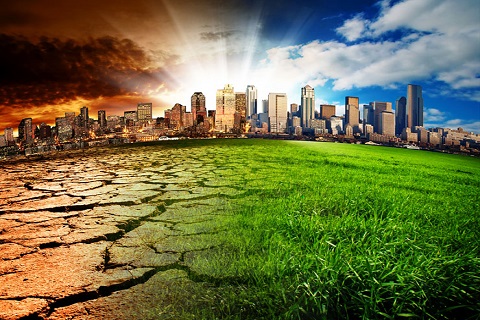Washington: Looking back at 2022’s weather with months of analysis, the World Meteorological Organisation said last year really was as bad as it seemed when people were muddling through it.
And about as bad as it gets — until more warming kicks in.
Killer floods, droughts and heat waves hit around the world, costing many billions of dollars.
Global ocean heat and acidity levels hit record highs and Antarctic sea ice and European Alps glaciers reached record low amounts, according to the United Nations’ climate agency’s State of Global Climate 2022 report released Friday.
While levels have been higher before human civilisation, global sea height and the amount of heat-trapping carbon dioxide and methane in the air reached highest modern recorded amounts.
The key glaciers that scientists use as a health check for the world shrank by more than 1.3 metres (51 inches) in just one year and for the first time in history no snow survived the summer melt season on Switzerland’s glaciers, the report said.
Global heat and other weather records go back to 1850.
Last year was close to but not quite the hottest year on record, ranking fifth or sixth hottest depending on measuring techniques. But the past eight years are the hottest eight years on record globally.
The world kept that warm despite the rare third year of a La Nina, a natural temporary cooling of parts of the Pacific Ocean that changes weather worldwide.
The United Kingdom, France, Ireland, Portugal, Spain, Belgium, Luxembourg, Italy, Germany, Switzerland and New Zealand had their hottest years on record.
“In 2022, continuous drought in East Africa, record breaking rainfall in Pakistan and record-breaking heat waves in China and Europe affected tens of millions, drove food insecurity, boosted mass migration, and cost billions of dollars in loss and damage,” said WMO Secretary-General Petteri Taalas said in a statement.
China’s heat wave was its longest and most extensive in that country’s record with its summer not just hottest on record but smashing the old record by more than 0.5 degrees Celsius (0.9 degrees Fahrenheit), the 55-page report said.
Africa’s drought displaced more than 1.7 million people in Somalia and Ethiopia, while Pakistan’s devastating flooding — which put one-third of the nation under water at one point — displaced about 8 million people, the report said.
AP

